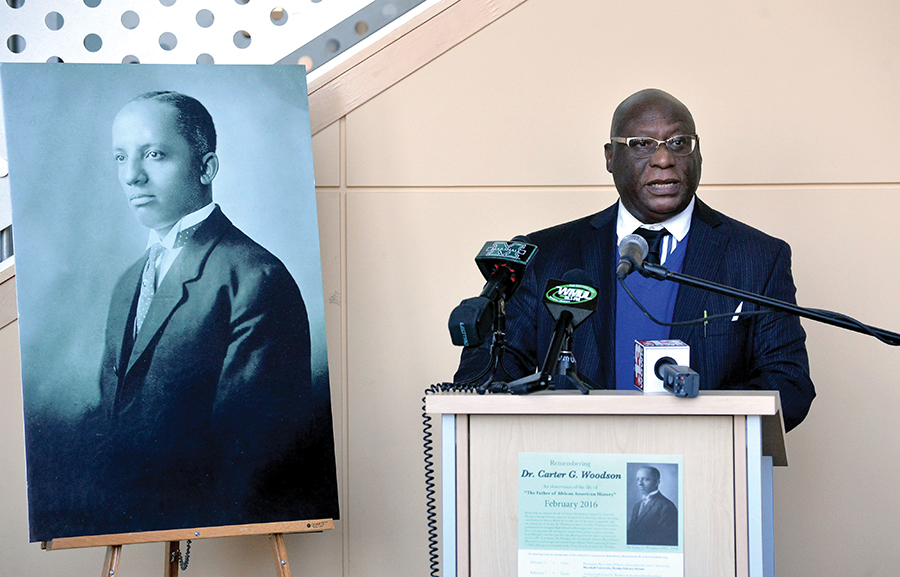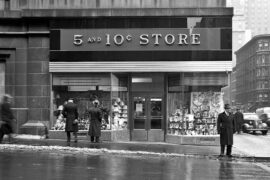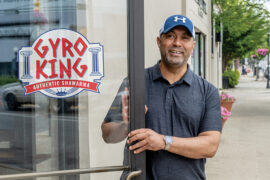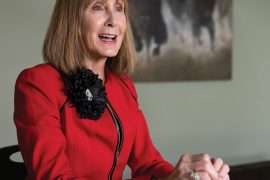The Dr. Carter G. Woodson Lyceum at Marshall University strives to advance the teachings of the Father of Black History.
By Burnis R. Morris
HQ 112 | WINTER 2021
The Dr. Carter G. Woodson Lyceum burst onto the scene at Marshall University five years ago as a public forum reintroducing Woodson — the man internationally recognized as the Father of Black History — to both the Tri-State region and all of West Virginia.
Woodson, who attended and later served as principal at Douglass High School in Huntington, went on to become a renowned scholar who dedicated his life to writing an inclusive history of the United States that integrated African Americans. The Lyceum has become the major provider of programs for observing Black History Month. It also supports programs for strengthening journalism education and a free press, as Woodson did.
The impetus for the Lyceum came in early 2016 during a call-to-action luncheon sponsored by the Drinko Academy at Marshall. That day 35 campus and civic leaders came together and agreed that highlighting Woodson as a former Huntington student and principal, and Fayette County coal miner, would enhance the story as unique to this region. Later that year Dr. Alan Gould, then executive director of Drinko Academy, and I concluded that an institute would be a bold statement. Gould offered the name lyceum because his research indicated Aristotle’s first school was called a lyceum in 335 B.C. The word lyceum was significant in American history as well. Abraham Lincoln’s first speech denouncing vigilante violence against abolitionists was at a lyceum in Springfield, Illinois, following the murder of anti-slavery newspaper editor Elijah Lovejoy. In addition, Ida B. Wells, the anti-lynching crusading newspaper editor, used a Memphis lyceum to discuss issues of concern to African Americans. And the University of Mississippi Lyceum building was the setting of a significant civil rights victory in 1962, when the school admitted its first Black student while rioters protested outside the iconic structure.
Despite its short history, the Woodson Lyceum has achieved major successes. In June, it will convene its fourth Institute on Black History for West Virginia teachers, with leading figures in education and African and African American studies as instructors. The program covers teachers’ tuition for graduate credit and $500 stipends. The institutes have been supported by major grants from the West Virginia Humanities Council.
“We’re big fans of the Lyceum,” said WVHC Executive Director Eric Waggoner. “The institutes fill a void. The Lyceum does practical good in teacher training in disseminating of information, traditions, stories and biographies that would otherwise be lost. At the same time, it does a great job raising awareness of this particular central figure (Woodson) in education.”
Joe Geiger, state historian and West Virginia Archives director, credited the Lyceum with growing interest in Woodson. “The Lyceum’s approach, which emphasizes training educators, will continue to bear fruit,” Geiger noted.
Cabell County Schools Superintendent Ryan Saxe knew little about Woodson until he attended two Lyceum institutes for teachers. He has since adopted Woodson’s strongest points — mainly, that students should study Black history throughout the year. “Woodson left a legacy that future generations of our African American students and families can look to for inspiration and what is possible,” Saxe asserted. “I think that he was a model citizen in our community.” Recently, Saxe enlisted the Lyceum to assist him in making local schools more welcoming and training employees on bias.
As a center, the Lyceum has become a major resource for the region and a provider of significant educational events. It has organized presentations by Earl Lewis, president of the Mellon Foundation, 2017; Carla Hayden, librarian of Congress, 2018; Evelyn Higginbotham, first Black chair of Harvard’s History Department and president of the Association for the Study of African American Life and History, 2020; and Dr. Jerome Adams, then-surgeon general of the United States, in December. It has also sponsored Black History Poster Competitions, Black History Essay Competitions and high school journalism workshops with The Herald-Dispatch in support of the free press.
Readers interested in donating to The Dr. Carter G. Woodson Lyceum or finding information about its programs may visit www.marshall.edu/woodsonlyceum.





